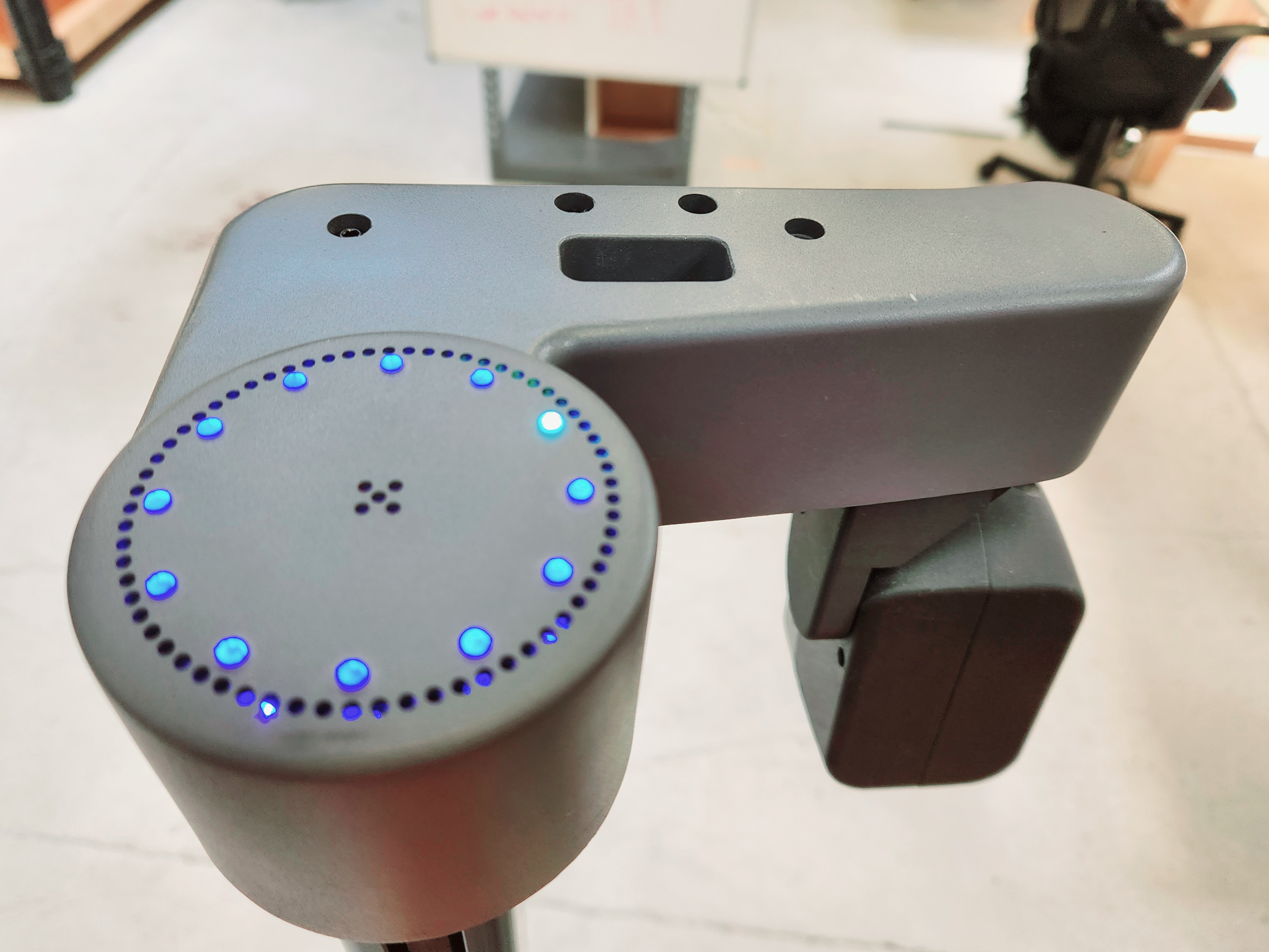4.3 KiB
Example 8
This example will showcase how to save the interpreted speech from Stretch's ReSpeaker Mic Array v2.0 to a text file.

Begin by running the respeaker.launch file in a terminal.
roslaunch respeaker_ros respeaker.launch
Then run the speech_text.py node. In a new terminal, execute:
cd catkin_ws/src/stretch_tutorials/src/
python3 speech_text.py
The ReSpeaker will be listening and will start to interpret speech and save the transcript to a text file. To shut down the node, type Ctrl + c in the terminal.
The Code
#!/usr/bin/env python3
import rospy
import os
from speech_recognition_msgs.msg import SpeechRecognitionCandidates
class SpeechText:
"""
A class that saves the interpreted speech from the ReSpeaker Microphone Array to a text file.
"""
def __init__(self):
"""
Initialize subscriber and directory to save speech to text file.
"""
self.sub = rospy.Subscriber("speech_to_text", SpeechRecognitionCandidates, self.callback)
self.save_path = '/home/hello-robot/catkin_ws/src/stretch_tutorials/stored_data'
rospy.loginfo("Listening to speech.")
def callback(self,msg):
"""
A callback function that receives the speech transcript and appends the
transcript to a text file.
:param self: The self reference.
:param msg: The SpeechRecognitionCandidates message type.
"""
transcript = ' '.join(map(str,msg.transcript))
file_name = 'speech.txt'
completeName = os.path.join(self.save_path, file_name)
with open(completeName, "a+") as file_object:
file_object.write("\n")
file_object.write(transcript)
if __name__ == '__main__':
rospy.init_node('speech_text')
SpeechText()
rospy.spin()
The Code Explained
Now let's break the code down.
#!/usr/bin/env python3
Every Python ROS Node will have this declaration at the top. The first line makes sure your script is executed as a Python3 script.
import rospy
import os
You need to import rospy if you are writing a ROS Node.
from speech_recognition_msgs.msg import SpeechRecognitionCandidates
Import SpeechRecognitionCandidates from the speech_recgonition_msgs.msg so that we can receive the interpreted speech.
def __init__(self):
"""
Initialize subscriber and directory to save speech to text file.
"""
self.sub = rospy.Subscriber("speech_to_text", SpeechRecognitionCandidates, self.callback)
Set up a subscriber. We're going to subscribe to the topic speech_to_text, looking for SpeechRecognitionCandidates messages. When a message comes in, ROS is going to pass it to the function "callback" automatically.
self.save_path = '/home/hello-robot/catkin_ws/src/stretch_tutorials/stored_data
Define the directory to save the text file.
transcript = ' '.join(map(str,msg.transcript))
Take all items in the iterable list and join them into a single string named transcript.
file_name = 'speech.txt'
completeName = os.path.join(self.save_path, file_name)
Define the file name and create a complete path directory.
with open(completeName, "a+") as file_object:
file_object.write("\n")
file_object.write(transcript)
Append the transcript to the text file.
rospy.init_node('speech_text')
SpeechText()
The next line, rospy.init_node(NAME, ...), is very important as it tells rospy the name of your node -- until rospy has this information, it cannot start communicating with the ROS Master.
!!! note The name must be a base name, i.e. it cannot contain any slashes "/".
Instantiate the SpeechText() class.
rospy.spin()
Give control to ROS. This will allow the callback to be called whenever new messages come in. If we don't put this line in, then the node will not work, and ROS will not process any messages.
